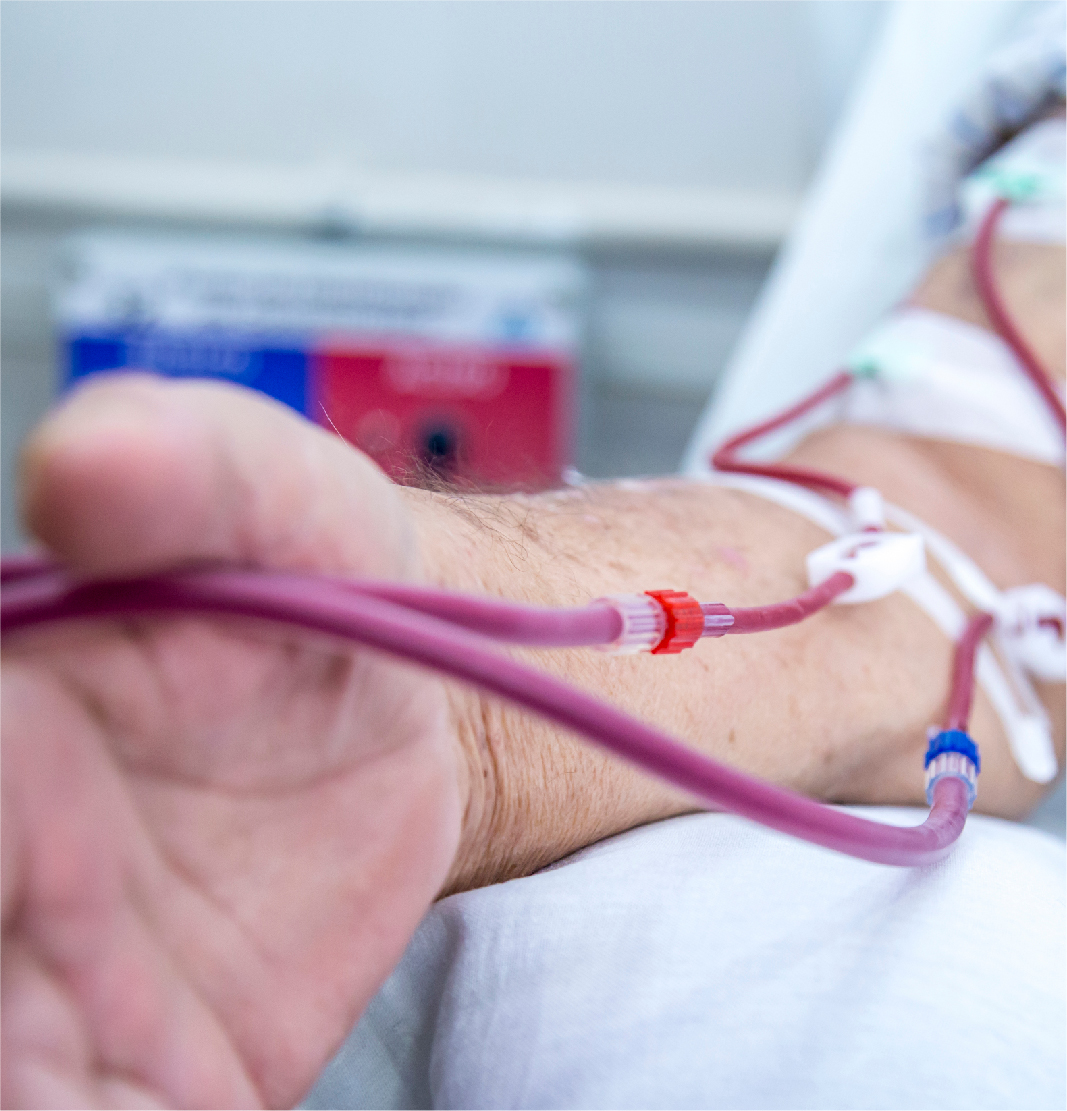
Welcome to Bhagwan Mahaveer Cancer Hospital & Research Centre (BMCHRC), a beacon of hope and healing for individuals confronting Intensive Care. Our institution stands as a pillar of comprehensive care, where cutting-edge treatments merge with compassionate support to guide patients towards optimal health outcomes.
Welcome to Bhagwan Mahaveer Cancer Hospital & Research Centre (BMCHRC), where our Intensive Care Services are dedicated to providing expert care for critically ill patients with compassion, skill, and unwavering dedication. Our state-of-the-art intensive care units (ICUs) are equipped with advanced technology and staffed by a multidisciplinary team of healthcare professionals trained to deliver comprehensive critical care tailored to each patient's unique needs.

Our intensive care team specializes in the management of critically ill patients, including those with complex medical conditions, post-operative complications, or acute life-threatening emergencies. We provide advanced monitoring, hemodynamic support, and expert medical interventions to stabilize patients and optimize their chances of recovery.

For patients with respiratory failure or difficulty breathing, we offer mechanical ventilation support to assist with breathing and maintain adequate oxygenation. Our team of respiratory therapists and critical care physicians is skilled in managing ventilator settings and optimizing respiratory function to support patient recovery.

We utilize advanced hemodynamic monitoring techniques to assess cardiac function, fluid status, and tissue perfusion in critically ill patients. This allows us to detect and manage hemodynamic instability promptly, optimize cardiac output, and prevent complications such as shock or organ failure.

For patients with acute kidney injury or renal failure, we offer renal replacement therapy, including hemodialysis or continuous renal replacement therapy (CRRT). Our nephrology team collaborates closely with critical care physicians to provide comprehensive renal support and optimize patient outcomes.

Following complex surgical procedures, patients may require specialized intensive care management to monitor for post-operative complications and ensure optimal recovery. Our post-operative care team provides comprehensive monitoring, pain management, and support to facilitate the transition to recovery.

Our intensive care team comprises critical care physicians, nurses, respiratory therapists, pharmacists, nutritionists, and other healthcare professionals working collaboratively to provide holistic care for each patient. We prioritize communication, coordination, and teamwork to deliver seamless and integrated care across disciplines.
.webp)
For patients with advanced illness or end-of-life care needs, we offer palliative care services to address symptoms, provide emotional support, and improve quality of life. Our palliative care team works closely with patients, families, and primary caregivers to ensure dignity, comfort, and respect throughout the care journey.
We understand the importance of involving families in the care of critically ill patients and providing them with support, information, and resources during challenging times. We offer family-centered care, including regular updates on patient status, emotional support, and educational materials to help families navigate the intensive care experience.
Request a callback from our healthcare specialist
Intensive care is a specialized medical service provided to patients with life-threatening conditions or severe illness requiring close monitoring, advanced medical interventions, and specialized nursing care. Patients who may require intensive care services include those with critical injuries, severe infections, respiratory failure, organ failure, or complications following surgery or trauma.
Patient care in the ICU is managed by a multidisciplinary team of healthcare professionals, including critical care physicians, nurses, respiratory therapists, pharmacists, and other specialists. The team collaborates closely to assess patient status, develop individualized care plans, and implement medical interventions to stabilize and support patients' vital functions.
The ICU is equipped with advanced medical equipment and technology to monitor patients' vital signs, administer medications, provide respiratory support, and perform diagnostic tests and procedures. This may include mechanical ventilators, cardiac monitors, hemodynamic monitors, infusion pumps, bedside ultrasound, and point-of-care testing devices.
Patients in the ICU are continuously monitored using advanced monitoring technology to assess vital signs, cardiac function, respiratory status, neurological status, and other key parameters. This allows the healthcare team to detect changes in patient condition promptly and intervene as needed to optimize patient outcomes.
The ICU team is responsible for managing pain, discomfort, and agitation in critically ill patients through a combination of pain medications, sedatives, and non-pharmacological interventions. Pain management and sedation protocols are tailored to each patient's individual needs and preferences to ensure optimal comfort and control.
Family members are encouraged to participate in the care of ICU patients and are provided with regular updates on patient status, treatment plans, and prognosis. The ICU team also offers emotional support, counseling, and resources to help families cope with the stress and uncertainty of having a loved one in intensive care.
The duration of ICU stay varies depending on factors such as the severity of illness, underlying medical conditions, response to treatment, and the need for ongoing monitoring and support. Some patients may require only a brief period of intensive care, while others may have more prolonged stays depending on their clinical course and recovery trajectory.
Intensive care involves the use of advanced medical interventions and monitoring techniques, which carry certain risks and potential complications. These may include infections, ventilator-associated pneumonia, blood clots, pressure ulcers, delirium, and adverse reactions to medications. The ICU team works diligently to minimize these risks and optimize patient safety throughout the care process.
Patients may be transferred out of the ICU once their condition stabilizes, and they no longer require the level of monitoring and support provided in intensive care. Transfer criteria typically include stable vital signs, improved organ function, resolution of acute illness or injury, and readiness for a lower level of care, such as a step-down unit or general medical-surgical ward.
After discharge from the ICU, patients may require ongoing medical care, rehabilitation, or support services to facilitate recovery and optimize long-term outcomes. The ICU team works closely with other healthcare providers and specialists to coordinate follow-up care, monitor patient progress, and address any ongoing medical needs or concerns.